MercoPress. South Atlantic News Agency
Tag: US dollar in Argentina’s parallel market
-
Wednesday, October 17th 2018 - 01:24 UTC
US dollar falls for seventh time in a row against Argentine peso, but inflation still among five worst
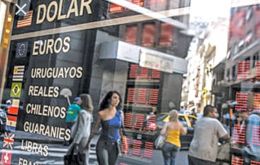
The US dollar fell Tuesday yet again, making it the seventh straight time the peso manages to recover due to the government's “cash-drought” measures. But that did not change the fact that According to the International Monetary Fund’s latest report, Argentina will have the fifth highest inflation rate in the world, which is expected to reach 41.5 by the end of the year..
-
Wednesday, October 8th 2014 - 20:40 UTC
IMF forecasts two years of recession for Argentina
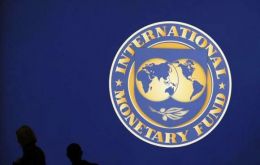
The International Monetary Fund anticipates two years of recession for Argentina in a context of “increasing economic misbalances” and “uncertainty” because of the ongoing litigation with the holdouts or 'vulture funds', as well as inflationary tensions.
-
Thursday, January 23rd 2014 - 09:26 UTC
US dollar with no cap in Argentina: climbs 3.4% in a single day
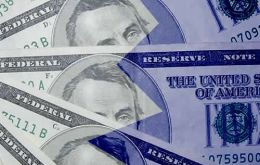
The US dollar in the Argentine official market on Wednesday soared 23 cents to 7.125 Pesos, establishing a new record in the midst of uncertainty and frantic trading. The last time the greenback price climbed 3.4% in a single day was back in April 2002. Since the beginning of the year the Argentine peso has plunged 9% against the dollar and a year ago the dollar stood at 5 Argentine Pesos.
-
Thursday, January 16th 2014 - 09:22 UTC
US dollar reaches new record in Argentina, 11.25 Pesos

The US dollar in Argentina continued to climb on Wednesday and reached new highs both in the official market and in parallel trading or the 'blue market'. The official rate closed at 6.75 Pesos to the greenback while the 'blue' reached a record 11.25 Pesos (selling price) with a 66.5% gap between both markets.
-
Thursday, November 1st 2012 - 23:28 UTC
Argentina tightens ‘dollar-clamp’: end to mortgage loans in US currency
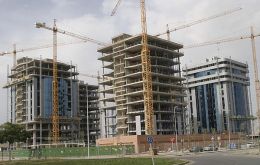
Argentina tightened the ‘dollar clamp’ a further notch by including mortgage credits, which means people wanting to become home owners will not have access to the US currency.
-
Wednesday, September 19th 2012 - 06:05 UTC
Argentine economy to expand 1% this year, according to private estimates
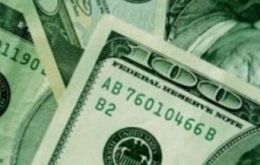
The Argentine economy is expected to grow 1% this year with manufacturing activity virtually stagnant, according to the head of a leading economic consultancy agency in Buenos Aires who nevertheless admits that the government stats “will probably show a better performance”.
-
Saturday, September 8th 2012 - 05:20 UTC
Argentina limits dollar trading for arriving tourists in ports and airports
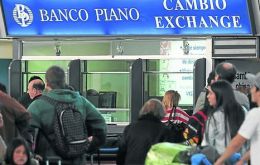
The Argentine government is further tightening the US dollar clamp. On Thursday the Central bank announced that state-run banks and agencies will be the only ones officially allowed to operate foreign currency exchange offices in airports and ports.
-
Thursday, August 23rd 2012 - 01:46 UTC
Argentine government economists agree the Peso in over-valued and hurts non primary exports
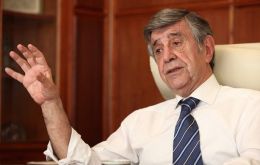
Three Argentine economists, particularly close to the government of President Cristina Fernandez have admitted that the Argentine Peso is overvalued and is causing problems for non commodity exports which need to be addressed.
-
Monday, August 6th 2012 - 22:02 UTC
Dollar deposits and loans erosion in Argentina as restrictions become stricter
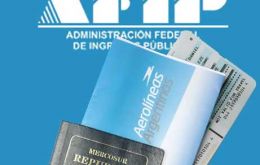
The strict and tightening US dollar purchase restrictions imposed in Argentina were clearly exposed in the banking system dollar deposits and loans during the last week of July when they dropped 3%, having accumulated 43% in the last few weeks, according to official data from the central bank.
-
Saturday, July 21st 2012 - 06:44 UTC
Argentine collar clamp has sentenced businessman ‘trapped’ in Uruguay

An Argentine businessman who was sentenced in Uruguay to home arrest following a car accident in which one person died remains at the location of the crime because his family in Argentina have been unable to purchase the 5.000 US dollars bail needed for his release.
